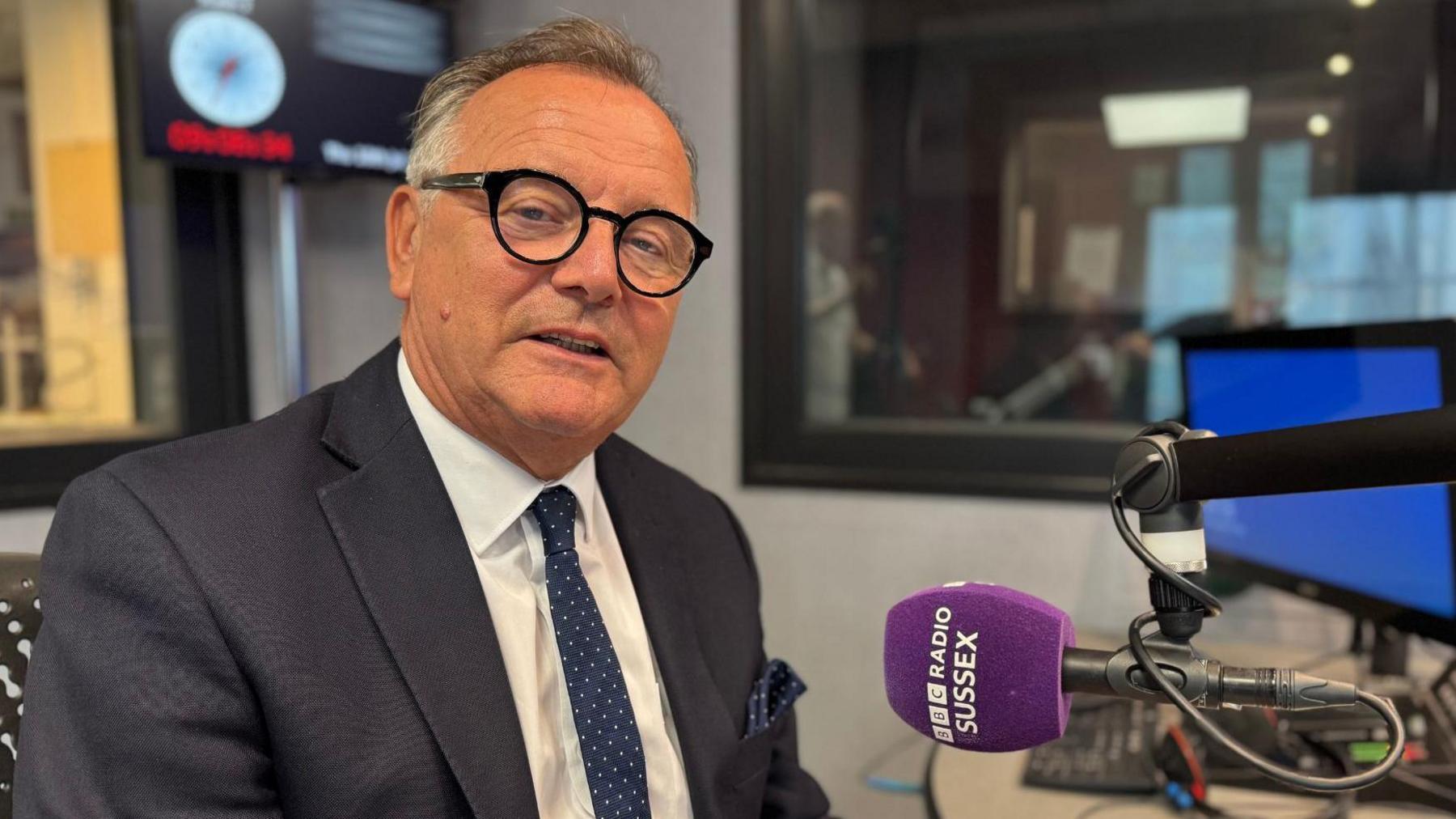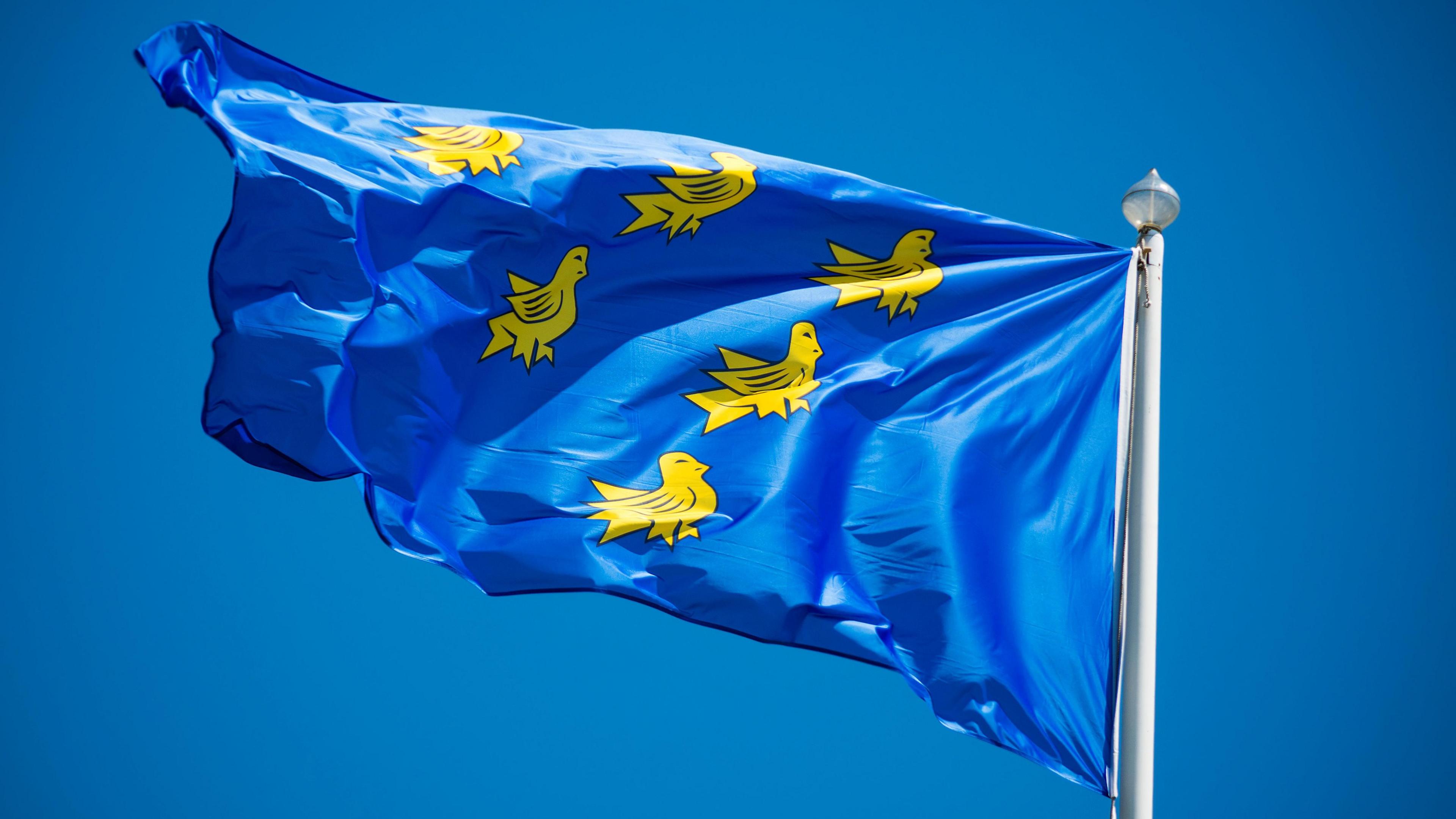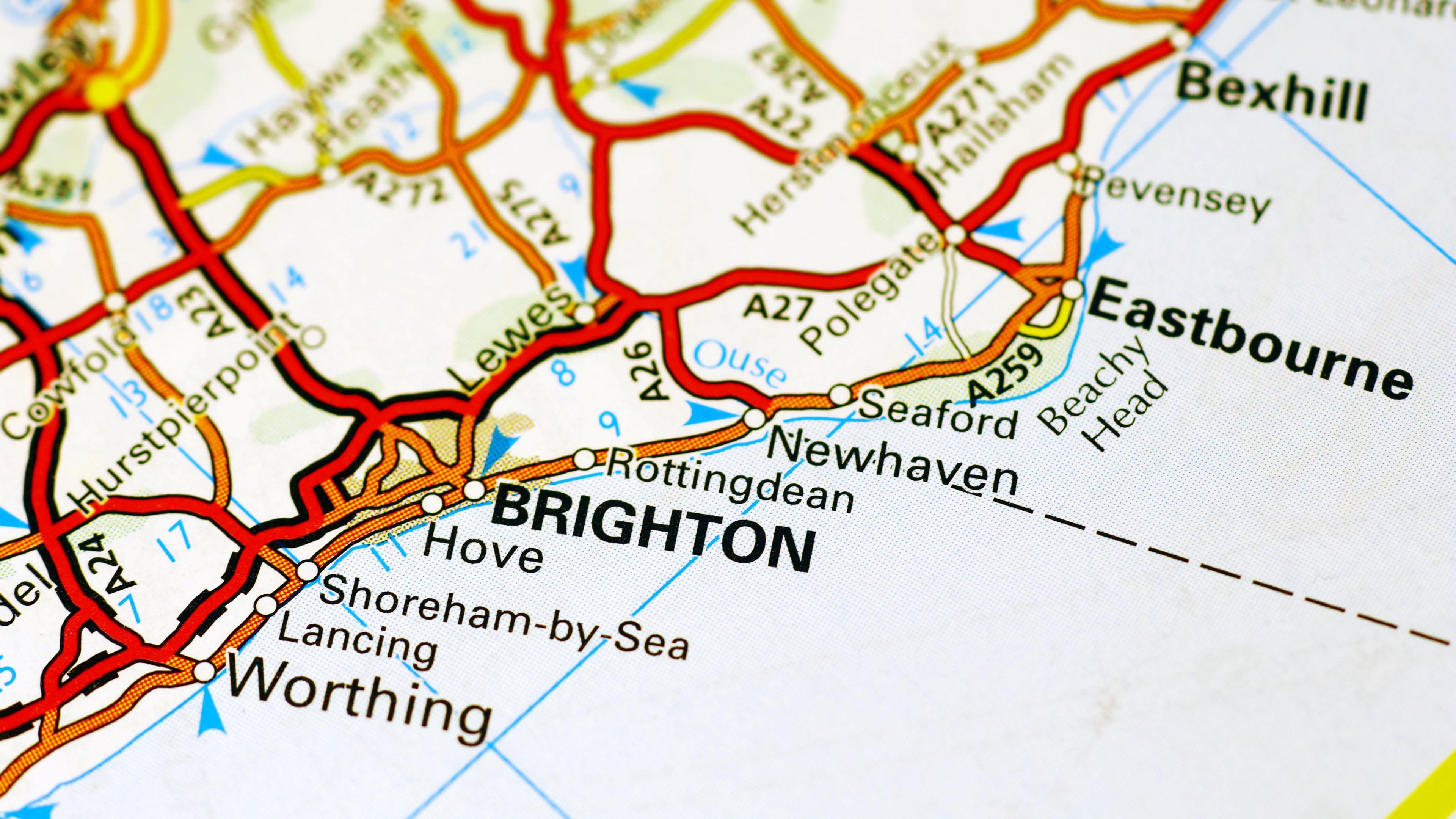Five takeaways from council leader in Hot Seat

Paul Marshall is leader of West Sussex County Council
- Published
The leader of West Sussex County Council has been in the Hot Seat at BBC Radio Sussex answering questions from listeners.
Paul Marshall lives in Washington and was first elected to the council in 2017 before being chosen as leader in 2019.
He was asked on Thursday about the subjects that matter most to people across the county, including secondary school places, budget pressures and potholes.
Here are five takeaways from what he had to say…
Secondary school places
There are 271 children in West Sussex who have not been offered a place at any of their three preferred secondary schools for the upcoming academic year.
For some parents, including comedian and former school teacher Romesh Ranganathan, it means dropping older siblings at one school and the youngest at a school in a different area.
"You've got to get two or more children to different places at the same time," Mr Ranganathan said.
"The system is letting people down, there's people whose kids have been allocated so far away that they don't know how they're going to do the school run."
Mr Ranganathan asked Mr Marshall for his response to people who say the system is failing and if he thinks it is acceptable.
He responded: "We've got 97% of children in a secondary who have been given one of their three choices. That's not a broken system.
"But I do recognise there will always be a cohort that will be sort of disappointed."
Mr Marshall said he would "love" to get 100% of children into their preferred schools.
He cited an increase in people moving to the area as the reason for the lack of places and said building schools needs to "sit alongside" plans for housing developments.
Solar panels on farmland
The government has pledged to treble the UK's capacity to generate solar power over the next five years - but where will the panels go?
Well, not on West Sussex agricultural land if the council leader has his way.
"I don't think we should be using good quality agricultural land for solar farms, I think the best locations for those are brownfield sites," he said.
"We, as West Sussex, have two sites of solar farms and they're on old refuse sites or brownfield sites, and personally I think that's the best use for those locations."
But Mr Marshall admitted it would be up to the landowner to choose what to do with the land, rather than the council, though they would need planning permission from the district councils.
Devolution
In December, the government announced a "devolution revolution", with elected mayors across England and an end to two-tier council structures.
Under the plans, all 12 of the boroughs and district councils and East and West Sussex county councils will be scrapped.
An elected mayor will take on responsibility for strategic decisions on the economy, transport and infrastructure and new unitary authorities will be created to run all of the day-to-day services.
Brighton and Hove is already run by a unitary city council, but its population is smaller than the government wants new authorities to cover.
Mr Marshall said it could mean the city council tries to take on some of the population currently under West Sussex County Council.
"I don't want to do that, as far as I'm concerned West Sussex is West Sussex," he said.
"The situation with Brighton and Hove is a little bit confusing at the moment."
Mr Marshall said proposals will be presented to the government in September, which will then decide the outcome.
He is also seeking the Conservative Party nomination to become the Mayor of Sussex.
Roads and potholes
Mr Marshall was asked about the county council's track record on repairing potholes.
"We've really managed to step up on our road infrastructure and repairs," he said.
"Last year, for the first three months, reported potholes were 7,500 whereas this year it's 1,700.
"That's an indication as to how effective our work has been, [and] when a pothole does get reported we normally allow 28 days to go and address it, depending on severity.
"We're now doing it in 14 days, so we're very proud of what we've done. I hope residents are beginning to feel the difference.
"There will always be complaints, and i understand that, but we've been making a real effort."
Mr Marshall said that now the number of potholes being reported seemed to be reducing, the council is able to focus on proactive work on the roads, rather than reactive.
He claimed the council had improved 127 miles of road so far this year, compared with 131 miles overall last year.
Social care
According to the 2021 census, West Sussex has a population of 882,600, of which some 23%, or 205,800, are aged 65 and over.
With this figure set to increase to 28%, or 267,200, by 2035, Mr Marshall said the "complexity of need" is only going to become more demanding.
"We're finding more and more people are turning to us as a local authority for assistance and help," he said.
"It's a statutory duty [but] the funding we receive doesn't meet that, and now 2% of council tax has been dedicated to social care responsibilities..
"Council tax is a very emotive subject, I'm not necessarily in favour of an uncapped council tax, the focus is on keeping it as low as possible."
Follow BBC Sussex on Facebook, external, on X, external, and on Instagram, external. Send your story ideas to southeasttoday@bbc.co.uk , external or WhatsApp us on 08081 002250.
Related topics
- Published11 April

- Published21 March
